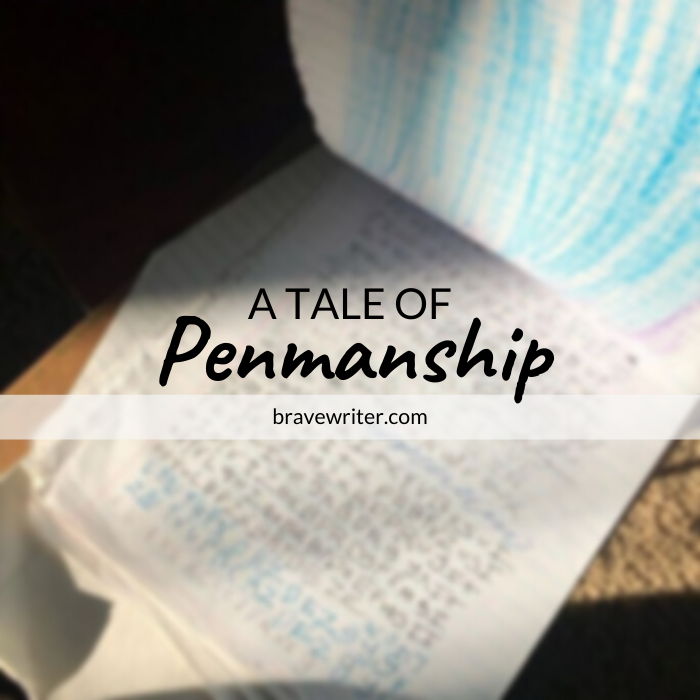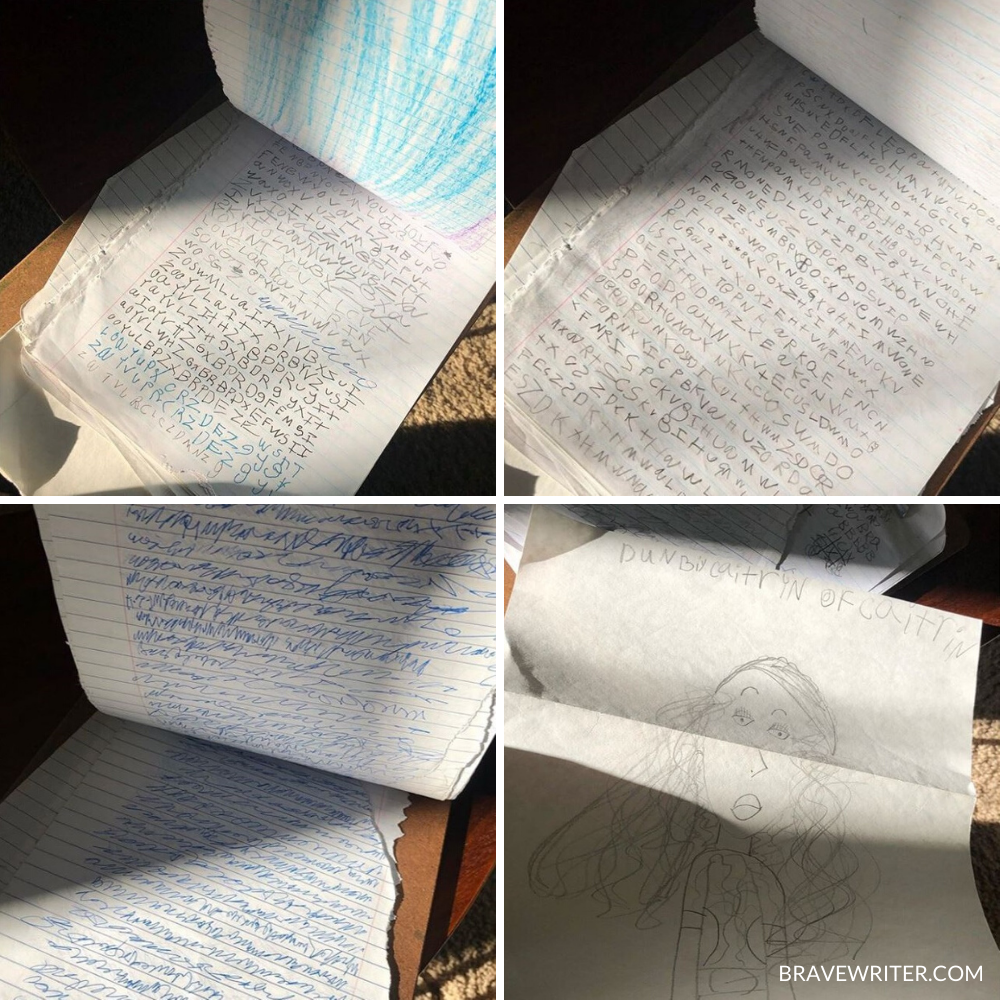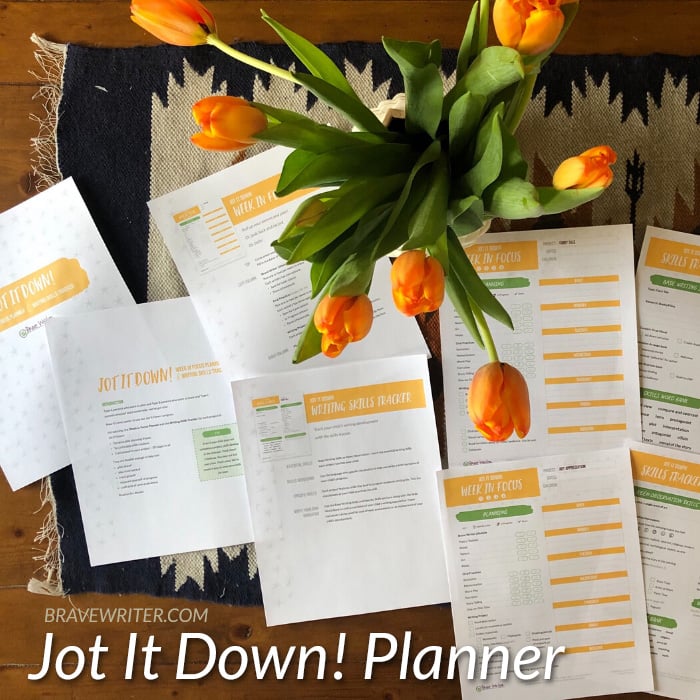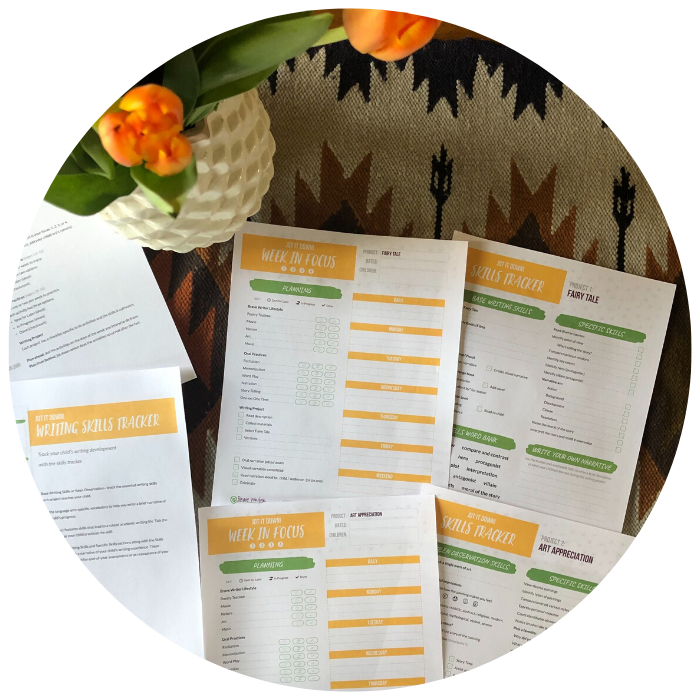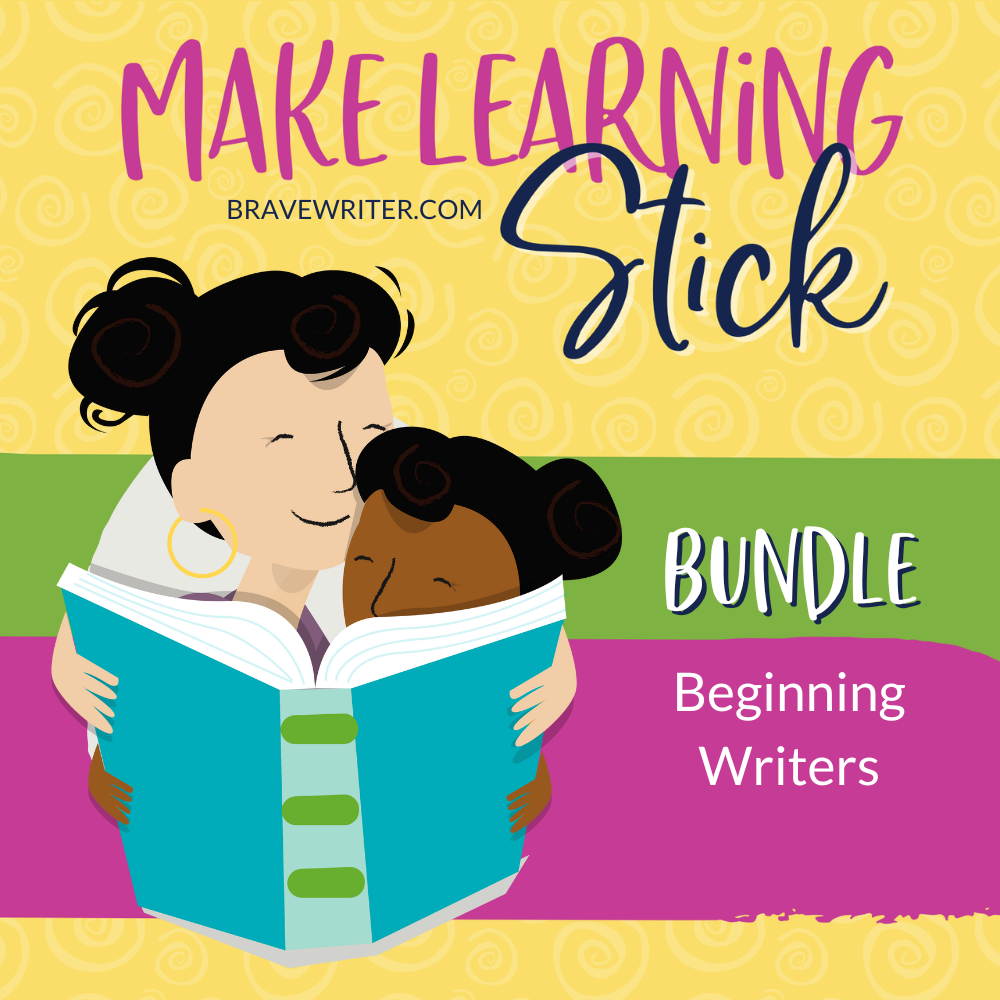
What if your kids learned to love writing this year?
So many parents assume that if there is JOY in the writing assignments, it must not be a SERIOUS program. But what if writing was supposed to produce joy?
After all, the content of writing is your amazing child’s MIND! Why wouldn’t that be a delight to discover and capture in words!?
Kids who experience joy are far more likely to learn what you want them to know! Joy is the glue that makes the learning stick.
Introducing the Brave Writer Beginning Writers Bundle!
The Beginning Writers Bundle helps you:
- Lay the groundwork for literacy in reading, writing and math
- Teaches you how to ask the kinds of questions that stimulate conversation and learning
- Provides activities that get your kids out of their chairs and into their bodies
- Allows a child to “write their own stories” even before they can read or handwrite
This bundle has everything you need to start strong!
Who’s it for?
Your youngest kiddos (ages 5-7): it’s important to lay that solid foundation of joy in self expression! It’s also a wonderful time to explore books and pencils—to fall in love with both!
Join us for an adventure all year!
Can’t wait for you to experience what our families have told us is life-changing.
Brave Writer Bundles
If you’re looking for some additional support, check out our online classes.
Psst: Do you have new-to-Brave-Writer friends? You can get a discount for them and for yourself using our Refer-a-Friend program!




